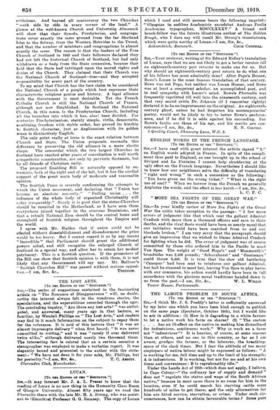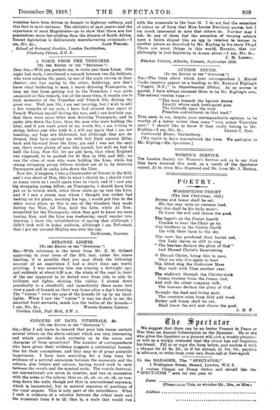THE LABOUR PROBLEM IN SOUTH AFRICA. [To Ism EDITOR OF
THE " SPECTATOR."] Snz,—I think Mr. J. S. Preddy's letter is sufficiently answered by my later one which you have been kind enough to publish on the same page (Spectator, October 18th), but I would like to ask in addition : (1) How is it degrading to a white farmer to let a native work his farm on shares? (2) " The custom . . . has an ill-effect on the native in making him disinclined for industrious, continuous work." Why is work on a farm not " industrious"? It is heavier, of course, at some seasons than at others, and no one in this country, so far as I am aware, grudges the farmer, or the labourer, the breathing- space of the slack times. But I fear the attitude of too many employers of native labour might be expressed as follows : " A is working for me, full time and up to the limit of his strength; A is industrious. B is working, but not for me and at his own times and convenience : B is reprehensibly idle."
Under the Lands Act of 1913—which does not apply, I believe, in Cape Colony—" the ordinary law of supply and demand " does not " regulate the status and wage of the South African native," because in most cases there is no room for him in the location, even if he could march his starving cattle some hundreds of miles to get there; aid the only alternatives for him are hired service, starvation, or crime. Under such cir- cumstances, how can he obtain favourable terms ? Some poor.
wretches have been driven in despair to highway robbery, and this fact is most ominous. The statistics of past years—and the experience of most Magistrates—go to show that there are few populations more law-abiding than the Abantu of South Africa. Recent legislation is deliberately manufacturing criminals.—I
am, Sir, &c., ALICE WHENCE. School of Oriental Studies, London Institution, Finsbury Circus, E.C. 2.







































 Previous page
Previous page